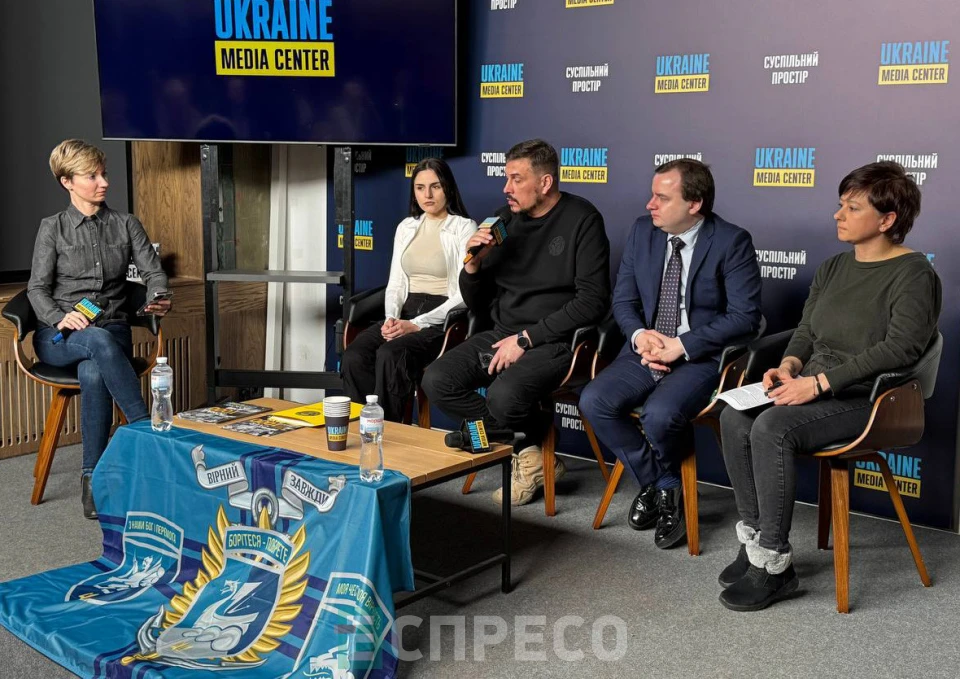
Over 1,300 Ukrainian marines still in Russian captivity
At least 1,300 Ukrainian marines are still in Russian captivity. Since the beginning of the full-scale invasion of Ukraine, 50 tortured bodies of marines have been returned
This was reported at a press conference dedicated to the thousandth day of captivity for the marines, which was attended by Espreso correspondent Nataliia Starepravo.
According to Anastasiia Savova, co-founder and head of the Marine Corps Strength Association, it is currently unknown how many marines may actually be in Russian prisons and are considered missing.
Savova stated that more than 100 marines have been illegally convicted and sentenced to heavy prison terms. Almost every second prisoner of war is in critical condition due to inadequate conditions and lack of medical care.
"My father has been in captivity for over a thousand days. He has tuberculosis, his legs are rotting. But I don't know where he has been moved to or if he is even alive now. It is additionally difficult not to know where the person is and what is happening to him. There are more than 200 detention centers in Russia, but this is the only known number of places from which Ukrainians have been released. There may be more prisons like this,” emphasized the head of the association.

Bohdan Okhrimenko, head of the secretariat of the Coordination Headquarters for the Treatment of Prisoners of War in Ukraine, reported that 505 marines have been freed from Russian captivity so far. He explained that the main source of information about detention sites in Russia comes from those who have been released. This helps the coordination center learn about the number of prisoners and their current condition.
"The International Committee of the Red Cross hasn't paid enough attention to the captured Ukrainians. Their resources are quite limited. We've been waiting for medical commission approvals for a year and a half, but nothing has come of it. However, we hope the new mechanisms being developed will bring results this year," said Okhrimenko.
He also mentioned that the most effective way to bring prisoners of war home is through support from a patronizing state, something Ukraine doesn't have right now. The Ministry of Foreign Affairs' Department of International Law confirmed that such negotiations are ongoing, but did not provide a list of countries involved.
Read also: 1,000 days in captivity: Kyiv rally calls for release of Ukrainian POWs
- News










































